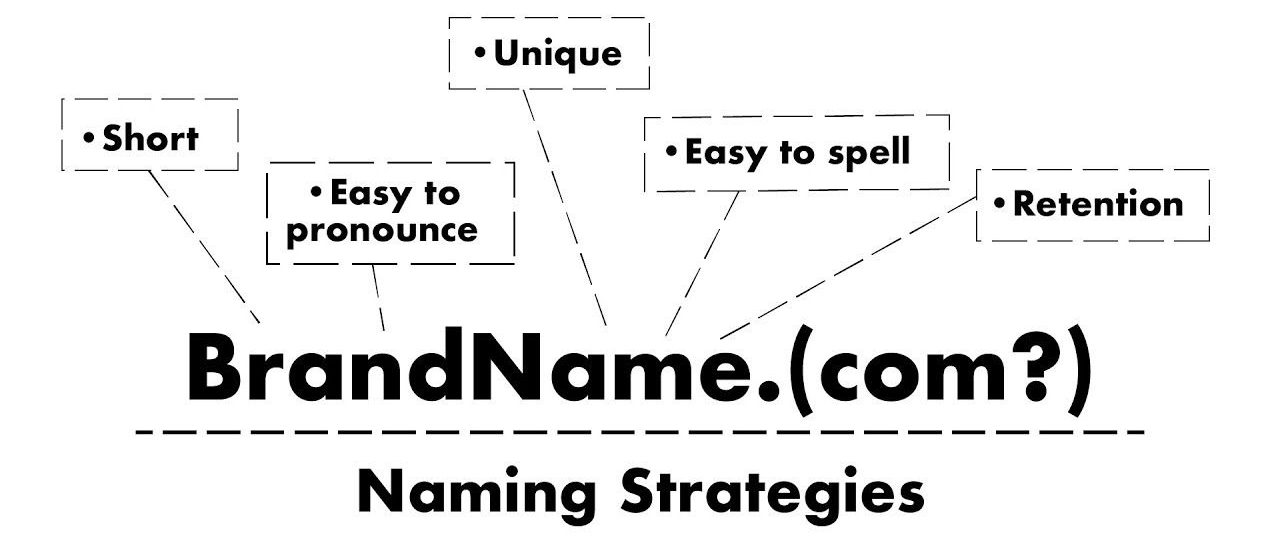In the ever-evolving landscape of modern commerce, a powerful and memorable title can serve as a catalyst for recognition and differentiation. The art of developing an exceptional label is a multifaceted process that blends creativity with strategic thinking. It is not merely about a catchy phrase; it encompasses the essence of a vision and the promise of an experience.
Throughout the journey of establishing a nascent enterprise, the initial impression often hinges on the selected title. A well-thought-out designation captures the attention of potential clients, evokes curiosity, and fosters brand loyalty. This crucial decision ultimately influences how a venture is perceived in the marketplace and plays a significant role in its growth trajectory.
To navigate this intricate task, innovators embrace various techniques that inspire originality and convey the core attributes of their endeavors. By considering cultural nuances, market trends, and target demographics, they can ensure their chosen appellation resonates deeply with their audience. The resulting identification not only reflects the heart of the initiative but also paves the way for long-lasting engagement and profitability.
Understanding the Importance of Brand Identity
Establishing a strong presence in the marketplace goes beyond just offering products or services; it encompasses the essence of recognition and value in the minds of consumers. Effective differentiation in a competitive landscape hinges on the clarity and strength of how an entity is perceived.

Key Elements of Brand Identity
Brand identity comprises several crucial components that collectively create a lasting impression:
- Logo: A visual symbol that encapsulates the core values and mission of the brand.
- Color Palette: A thoughtful selection of colors that evokes emotions and connects with the target audience.
- Typography: Specific fonts and type styles that convey the personality and tone of communication.
- Voice and Tone: The manner in which messages are delivered, reflecting the brand’s character.
- Tagline: A memorable phrase that succinctly summarizes the brand’s purpose or promise.
The Impact of Brand Identity
A well-defined brand identity not only attracts attention but also fosters loyalty and trust among consumers. Here are some significant impacts:
- Recognition: A strong identity ensures that a brand stands out, making it easily recognizable in a crowded market.
- Trust: Consistency in brand presentation cultivates consumer trust, leading to long-term relationships.
- Value Proposition: Clear identity enhances understanding of what the brand represents, thus adding perceived value.
- Emotional Connection: Strong branding fosters an emotional bond between the brand and its audience, enhancing loyalty.
In summary, a compelling brand identity serves as the foundation for effective communication and connection with the target audience, influencing perceptions and driving business growth.
Techniques for Generating Creative Names a Business
Creating distinctive identifiers is an essential task that combines imagination with strategy. Different methods can spark inspiration and lead to memorable appellations, enhancing the visibility of any venture. By employing a variety of techniques, individuals can brainstorm ideas that resonate well with their target audience.
Word Combination is an effective method where two or more relevant terms are fused together. This can yield innovative results that are easy to remember while conveying a meaningful message. For instance, merging concepts or emotions related to a product can create a catchy title that stands out in a crowded market.
Alliteration is another brilliant approach that involves repeating the same initial consonant sounds. This technique not only enhances the musicality of a title but also makes it more enjoyable and easier to recall. Catchy phrases with alliterative elements often linger in the minds of potential customers.
Metaphors and Analogies allow for imaginative connections between seemingly unrelated ideas. By comparing a concept to a well-known subject, one can generate intrigue and spark curiosity. Such metaphorical titles encourage exploration and engagement, often leading to a deeper understanding of the offered solution.
Use of Foreign Languages can provide a unique twist and an exotic flair. Borrowing terms from different languages can evoke specific feelings or associations, adding depth and allure to a title. However, care should be taken to ensure the meaning is clear and appropriate for the intended audience.
Initialisms and Acronyms simplify longer phrases into memorable abbreviations. This technique makes it easier for consumers to recall and share a title, contributing to a brand’s overall spread. However, it’s essential that these abbreviations still resonate meaningfully with the audience.
By exploring these imaginative strategies, individuals can unearth compelling titles that not only capture attention but also reflect the essence of their endeavor. Experimentation and creativity are vital in this process, leading to a powerful and impactful representation of one’s vision.
Analyzing Market Trends for Name Selection
Understanding prevailing market dynamics is crucial when determining a suitable title for a venture. Names that resonate with current trends can create a powerful connection with the target audience, enhancing recognition and memorability. Keeping a close eye on developing patterns allows for informed decisions that align with consumer expectations and preferences.
When evaluating market trends, consider the following factors:
- Consumer Behavior: Analyzing shifts in purchasing habits and preferences can provide insights into what resonates with your intended demographic.
- Industry Innovations: Staying updated with advancements in your sector can inspire relevant terminology or concepts that may appeal to potential clients.
- Competitive Landscape: Observing the naming conventions of similar enterprises can highlight successful strategies and common themes that drive customer engagement.
- Cultural Influences: Being aware of societal values, trends, and movements can help craft a title that feels timely and significant.
Engaging in thorough research not only aids in generating an impactful title but also sets the groundwork for effective branding and marketing initiatives. Balancing creativity with analytics will ultimately lead to an appropriate and appealing choice. The right title is not just a label; it embodies the essence and aspirations of the venture.
- Gather data on competitor naming strategies.
- Monitor social media trends relevant to your industry.
- Survey potential customers for their preferences and perspectives.
- Test different title options through focus groups.
By integrating these analyses into your naming process, you can ensure that the selected title will not only stand out in a crowded marketplace but also resonate with consumers on a deeper level.
Common Pitfalls in Naming Startups
Choosing the right title for a new venture is a critical step that often determines its future. Many individuals encounter various traps that can lead to ineffective or confusing identifiers. Recognizing these missteps is essential in order to establish a strong identity and resonate with the target audience.
Avoiding Generic Terms
Using overly common terms can dilute the distinctiveness of a label. Here are possible issues with generic choices:
- Lack of memorability: Names that blend into the crowd don’t stand out.
- SEO challenges: Common terms are often competitive, making online visibility difficult.
- Limited emotional connection: Generic names may fail to evoke interest or excitement.
Steering Clear of Complexity
Overly complicated titles can alienate potential customers. Consider the following points:
- Pronunciation difficulties: If a name is hard to pronounce, it’s easy to forget.
- Spelling complications: A complicated spelling can lead to confusion and miscommunications.
- Cultural insensitivity: Names that don’t translate well or carry different meanings in other languages can create barriers.
Legal Considerations for Business Names
Establishing a distinctive title for a venture involves navigating a landscape filled with various legal stipulations. It is crucial to understand the implications and potential restrictions that can arise when selecting a moniker, as these elements can significantly affect long-term viability and branding.
Before finalizing a title, one must take into account trademark registration, domain availability, and compliance with state regulations. Protecting intellectual property and ensuring that the chosen identifier does not infringe upon existing trademarks are essential steps in this process.
| Consideration | Description |
|---|---|
| Trademark Registration | Securing protection for the title to prevent unauthorized use by others. |
| Domain Availability | Checking if the desired web address is available for online presence. |
| State Regulations | Ensuring compliance with local laws governing the registration of company titles. |
| Business Structure | Considering how the chosen label aligns with the legal formation of the entity. |
| Social Media | Verifying the availability of the name across social platforms to maintain consistency. |
Addressing these legal aspects early in the naming process helps prevent complications and fosters a robust foundation for growth and recognition.
Testing Names with Target Audiences
Validating potential identifiers among the desired demographic is a crucial step in the development process. Engaging with the intended audience helps gauge the effectiveness and resonance of various titles, ensuring they align with consumer perceptions and preferences.
Methods of Engaging Your Audience
There are several strategies to interact with potential clients and gather feedback:
- Surveys: Distributing questionnaires can provide quantitative data on preferences and associations linked to specific identifiers.
- Focus Groups: Conducting sessions with diverse individuals allows for in-depth discussions, revealing insights on emotional responses and interpretations.
- Social Media Polls: Utilizing platforms like Instagram or Twitter for quick polls can attract immediate reactions and preferences.
Analyzing Feedback
Once data has been collected, it’s essential to analyze the responses carefully. Consider the following:
- Identify trends that emerge in the feedback.
- Assess any common concerns or praises regarding specific identifiers.
- Weigh the cultural and contextual implications of each suggestion.

This process not only sharpens the focus on the right identifier but also fosters a sense of community and involvement among potential customers. The insights gained can greatly enhance the alignment between the brand identity and audience expectations.
Questions and answers: How Entrepreneurs Create Startup Business Names
What are some effective strategies entrepreneurs can use to create unique business names?
Entrepreneurs often use various strategies to craft unique business names. One approach is brainstorming keywords that evoke the essence of the business, considering the products or services offered. Another strategy involves combining words or using portmanteaus, which can generate catchy and memorable names. Additionally, some entrepreneurs draw inspiration from different languages, historical references, or metaphors. It’s crucial to test the names for originality by checking domain availability and trademark databases, ensuring they are not already in use. Ultimately, a great business name should resonate with the target audience and reflect the brand’s values and mission.
Why is having a unique business name important for startups?
A unique business name is vital for startups because it helps differentiate the brand in a crowded market. A distinctive name can capture attention and make a lasting impression, which is essential for attracting customers and investors. It can also facilitate word-of-mouth marketing, as people are more likely to remember and share unique names. Furthermore, having an original name can aid in building a strong brand identity, enhancing recognition and loyalty over time. Importantly, a unique name reduces the risk of legal issues related to trademarks, as it is less likely to conflict with existing businesses.
How can entrepreneurs test the effectiveness of their chosen business names?
Entrepreneurs can test their chosen business names through various methods to gauge their effectiveness. One common approach is to conduct surveys or focus groups with potential customers, seeking feedback on clarity, memorability, and emotional resonance. Online tools like Google Trends can help analyze search interest and popularity of specific terms. Additionally, entrepreneurs can launch a landing page or social media profiles using the proposed name to see how potential customers engage with the brand. Monitoring the response and gathering data over time can provide valuable insights. Seeking feedback from industry experts or mentors can also refine the name selection process.
What role does online presence play in selecting a business name, and how can it impact a startup’s success?
The online presence of a business name plays a significant role in its overall success. In the digital age, having a unique and recognizable name that also has an available domain is crucial for establishing an online identity. If a name is already taken in a popular .com domain or major social media platforms, it can create confusion and hinder online marketing efforts. A well-chosen name that aligns with SEO practices can also improve visibility on search engines, making it easier for potential customers to discover the startup. Thus, selecting a name that is not only unique but also web-friendly can enhance a startup’s online presence and contribute to its long-term success.
How can a business name generator help you come up with a business name?
A business name generator can help you come up with a business name by providing a list of potential names based on your business type and preferences. It’s an effective tool for brainstorming creative business name ideas and ensuring your business name is unique and memorable.
What should you consider when choosing the right name for your new business?
When choosing the right name for your new business, you should consider a name that reflects your brand, is easy to spell, and resonates with your target audience. It’s also important to ensure your business name is available as a domain name and doesn’t limit your business as it grows.
How do you ensure your chosen name is available?
To ensure your chosen name is available, you should check domain name availability, perform a trademark search, and verify that the name you want isn’t already registered by another business. This will help avoid legal issues and ensure that the name is yours to use.
Why is it important to pick a name that’s easy to spell and remember?
Picking a name that’s easy to spell and remember is crucial because it helps customers find your business easily online and in directories. A name that’s simple and catchy makes it easier for people to remember and refer to your business, enhancing brand recognition.
What steps should you take after finding the perfect name for your business?
After finding the perfect name for your business, you should register your business, secure the domain name, and trademark the name if necessary. These steps will protect your brand legally and ensure your business name is available for use on business cards, websites, and marketing materials.









